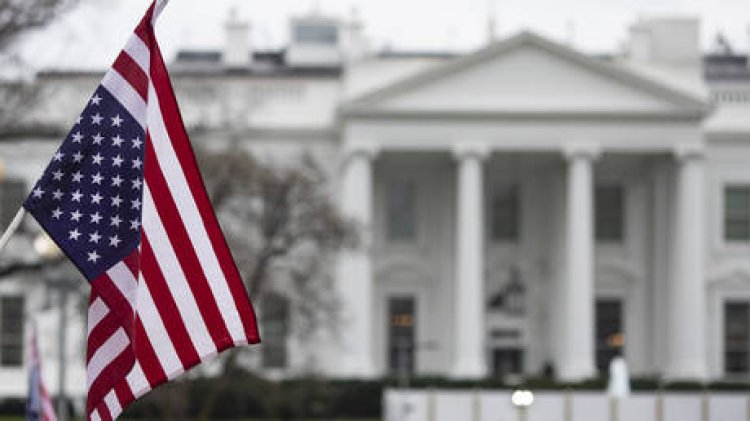US authorities discreetly preparing strategy to mitigate impact of Trump's tariffs – Bloomberg
Many reportedly fear the new levies and retaliatory measures from trade partners will harm American exporters. U.S. officials are searching for strategies to lessen the potentially detrimental impacts of the extensive tariffs introduced by...

U.S. officials are searching for strategies to lessen the potentially detrimental impacts of the extensive tariffs introduced by President Donald Trump, as reported by Bloomberg on Tuesday, drawing from sources in Washington. These discussions are said to be taking place without Trump's awareness and reveal a level of internal concern regarding his trade policy changes.
Last week, Trump imposed a minimum 10% tariff on all imports and established “reciprocal” duties ranging from 11% to 50% on numerous countries he accused of maintaining unfair trade practices. Among these new measures is an additional 34% duty on imports from China, added to an existing 20% rate, alongside a 20% levy on goods from the European Union, among others.
On Monday, Trump threatened to impose a further 50% tariff on all Chinese imports unless Beijing reverses the 34% increase it announced in response to the new U.S. levies. In the days that followed, several countries voiced objections to Trump's tariffs and pledged to implement countermeasures.
According to Bloomberg, officials within the Trump administration are concerned that retaliatory tariffs could harm U.S. exports, negatively affecting American firms looking to sell goods internationally. Sources indicated that discussions are ongoing regarding a possible exporter tax credit, which would act as a subsidy for U.S. companies selling products and services abroad. This credit, pending congressional approval, could potentially be issued by the end of the year.
Officials are additionally considering a credit for importers to help U.S. companies cope with rising costs for goods sourced from nations affected by Trump’s tariffs. These initiatives aim to cushion the economic impact on both exporters and importers once the tariffs are fully implemented.
Sources revealed to Bloomberg that neither Trump nor Treasury Secretary Scott Bessent has been formally informed about these deliberations, and the proposals are still awaiting complete backing from the administration’s economic team.
A Treasury spokesperson confirmed that discussions are in progress, but emphasized that any talk of “specific provisions” is still in the early stages. The spokesperson added that any tax proposals or initiatives pursued by Bessent would align with “his full support for President Trump’s America First Economic Agenda.” The White House has chosen not to comment on the matter.
Trump’s tariffs and the likelihood of retaliation have sparked concerns about a global trade war. Many investment banks have recently heightened their recession risk forecasts for both the U.S. and the global economy. Stock markets have experienced volatility, with major indexes in the U.S., Europe, and Asia all registering declines over the past three days.
Despite the backlash, Trump has defended the tariffs as crucial for rectifying trade imbalances. On Monday, he asserted on social media that the measures were effective and yielding substantial economic benefits for the U.S.
Sophie Wagner for TROIB News
Find more stories on Business, Economy and Finance in TROIB business












